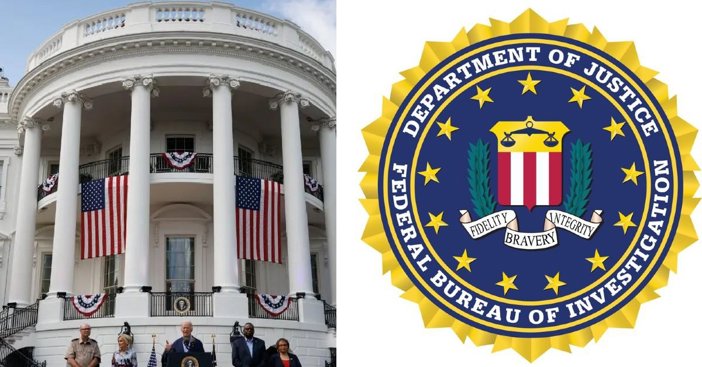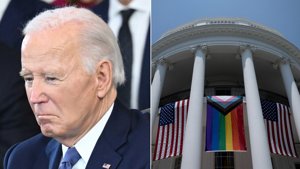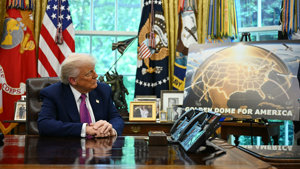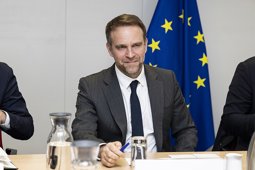
FBI Probes Iran Strike Leak Amid Debate on U.S. Bombing Impact
FBI investigates Iran strike leak as officials and lawmakers debate impact of U.S. bombing on nuclear sites.
White House Condemns Leak, Asserts Operation’s Success
The FBI has launched an investigation into the source of a leaked classified report on the recent U.S. airstrikes against Iranian nuclear facilities, as the White House and lawmakers remain at odds over the true extent of the operation’s effectiveness. Press Secretary Karoline Leavitt vowed that those responsible for leaking the preliminary intelligence assessment, which questioned the level of destruction achieved by President Donald Trump’s “Operation Midnight Hammer,” would be held accountable. “Leaking classified information is a criminal offense, and those who fail to follow the law need to be held accountable for that crime,” Leavitt told reporters. She added, “This administration wants to ensure that classified intelligence is not ending up in irresponsible hands.”
The preliminary assessment from the Defense Intelligence Agency (DIA), reported by CNN and the New York Times, suggested that the strikes on Iran’s nuclear sites only set back Tehran’s program by several months, contradicting public assertions by the Trump administration that the targets were “totally obliterated.” Leavitt dismissed the report as “flat-out wrong,” emphasizing the magnitude of the U.S. attack. “Everyone knows what happens when you drop 14 30,000-pound bombs perfectly on their targets: total obliteration,” she said.
Conflicting Reports and Capitol Hill Briefings
Official statements from the U.S., Israeli, and Iranian governments acknowledged severe damage to the targeted facilities, with Iran’s Foreign Ministry confirming that its nuclear sites were “badly damaged.” Israel’s Atomic Energy Commission called the attacks “devastating,” and U.S. Chairman of the Joint Chiefs of Staff Gen. Dan Caine said all three sites sustained “extremely severe damage and destruction.”
Senate Republicans, following a classified briefing with top White House and defense officials, echoed the administration’s assessment. “Their operational capability was obliterated. There’s nobody working there tonight. It was highly effective,” Sen. Lindsey Graham, R-S.C., told reporters. Senator Kevin Cramer, R-N.D., emphasized that “the damage to the [nuclear] capabilities of Iran are devastating.” He also cautioned against overreliance on DIA reports, stating, “One thing I’d consider is the DIA said that Ukraine would be wiped out in three days.”
Despite these confident assertions, some Senate Democrats left the briefing with lingering doubts, particularly regarding Iran’s stockpile of highly enriched uranium and the possibility that key elements of the nuclear program could survive. Senate Minority Leader Chuck Schumer, D-N.Y., said, “I did not receive an adequate answer to that question. What was clear is that there was no coherent strategy, no end game, no plan, no specific, no detailed plan on how Iran does not obtain a nuclear weapon.”
The question of whether Iran’s Fordow Fuel Enrichment Plant—deeply buried under rock—was completely neutralized remained open. Lawmakers from both parties agreed that only a “boots-on-the-ground” assessment could provide absolute certainty about the true extent of the damage. Some, like Sen. Mike Rounds, R-S.D., said, “Until more clear information is available, absolute confirmation of the total damage wrought by the bombs was not complete.”
Future Actions and Accountability
President Trump issued a stern warning to Iran, stating that any attempt to revive its nuclear program would result in another U.S. strike. He also called for the firing of reporters who covered the leaked assessment. Meanwhile, media outlets like CNN defended their reporting, maintaining that their coverage accurately reflected the initial findings and the evolving intelligence picture.
The ongoing debate highlights the tension between maintaining national security, upholding transparency, and managing political fallout. As the FBI’s investigation proceeds and the administration seeks to tighten control over classified material, Congress continues to demand clearer answers about the effectiveness and future direction of U.S. policy toward Iran’s nuclear ambitions.






